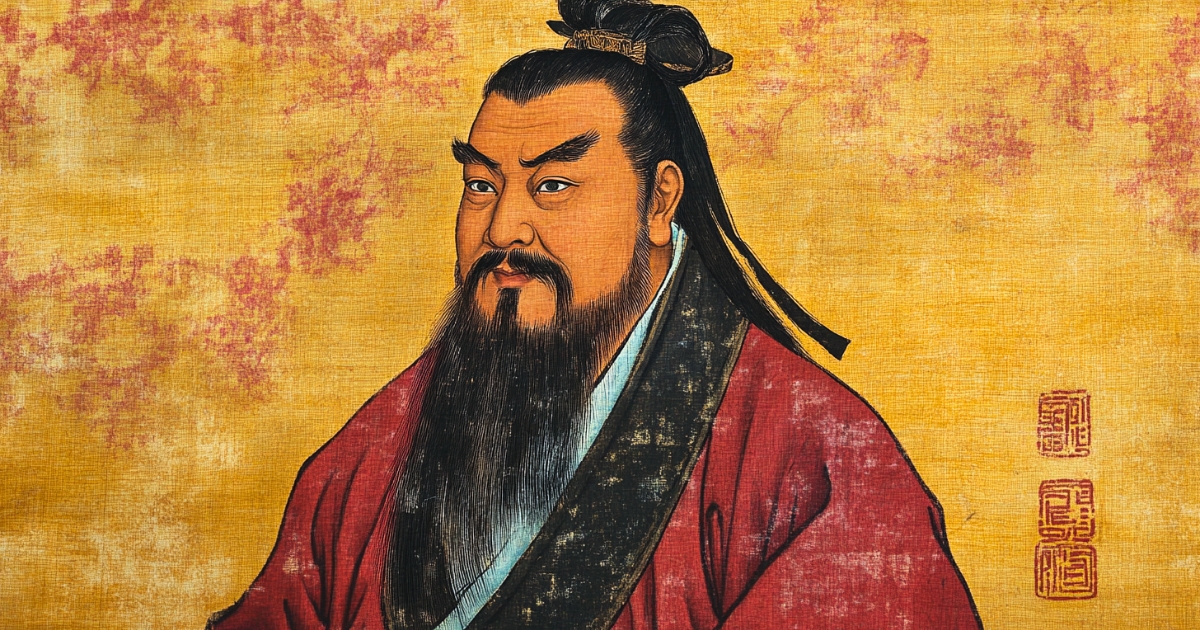Introduction
In the history of Chinese thought, the teachings of Confucius and Confucianism occupy one of the most important positions among philosophical systems. The ideas of Confucius, born in the 5th century BCE, have continued to exert a profound influence on the culture, politics, and society of China and East Asia for over 2500 years. This article explores the core of Confucian teachings, the development of Confucianism, and its significance in modern society.
The Life and Thought of Confucius
Confucius (551-479 BCE) was born in the state of Lu (present-day Shandong Province) during the late Spring and Autumn period. At that time, China was in a state of chaos, with the authority of the Zhou Dynasty in decline and various feudal states vying for power. Against this social backdrop, Confucius sought to define ideal forms of government and morality.
At the center of Confucian thought is the concept of “ren” (benevolence). Ren refers to human love and compassion, which Confucius considered the highest human virtue. He also emphasized other virtues such as “yi” (righteousness), “li” (propriety), “zhi” (wisdom), and “xin” (sincerity).
Confucius believed that if a junzi (gentleman or ideal person) who embodied these virtues were to govern, a peaceful and orderly society would be realized. His teachings were compiled by his disciples into “The Analects” and passed down to future generations.
The Development of Confucianism
After Confucius’s death, his teachings were inherited and developed by his disciples. In particular, Mencius (372-289 BCE) and Xunzi (313-238 BCE) interpreted Confucian thought from their own perspectives, further deepening Confucian philosophy.
During the Han Dynasty (206 BCE – 220 CE), Confucianism was adopted as the official state ideology. During this period, the “Five Classics” (including The Analects) were established as the canonical texts of Confucianism. Moreover, with the introduction of the imperial examination system, knowledge of Confucianism became the criterion for official recruitment, further expanding its influence.
In the Song Dynasty (960-1279), Neo-Confucianism (Zhu Xi school) emerged under the influence of Buddhism and Taoism, adding further depth to Confucian thought. Neo-Confucianism, systematized by Zhu Xi and others, had a significant impact on East Asian intellectual circles thereafter.
Confucian Political Philosophy
Confucianism is not merely a moral philosophy but also has aspects of political philosophy. Confucius believed that an ideal society could be realized if virtuous rulers educated the people and set moral examples.
This idea became the foundation of traditional Chinese political thought, expressed in the principle of “cultivating oneself, regulating the family, governing the state, and bringing peace to the world.” The Confucian view of politics long functioned as China’s governing philosophy and greatly influenced the bureaucratic and educational systems.
The Influence of Confucianism in East Asia
The influence of Confucianism was not limited to China but extended throughout East Asia, including the Korean Peninsula, Japan, and Vietnam. In these regions, Confucian values and educational systems were introduced, playing a significant role in shaping society and culture.
In particular, Confucian values emphasizing order and harmony in family and society became the foundation of social structures and human relationships in East Asian countries. The Confucian tradition of valuing scholarship and education also contributed to the development of educational systems and intellectual cultures in these countries.
The Significance of Confucianism in Modern Society
Although the influence of Confucianism temporarily weakened in the wave of modernization and Westernization after the 20th century, it has been attracting attention again in recent years. Particularly in China, Confucian thought is being re-emphasized as part of a movement to reevaluate traditional culture.
The significance of Confucianism in modern society can be considered in the following aspects:
- Foundation for moral education: Confucian teachings emphasizing individual morality and social responsibility are being applied in contemporary ethical education.
- Social harmony and stability: Confucian values emphasizing order and harmony in family and society serve as a stabilizing factor amid rapid social changes.
- Cultural identity: Confucianism forms an important part of the cultural identity of East Asian countries and plays a crucial role in recognizing one’s own culture in the context of globalization.
- Implications for international relations: Confucian thought emphasizing “harmony” suggests the importance of dialogue and cooperation in international relations.
Conclusion
Confucianism, originating from the teachings of Confucius, has formed the core of thought and culture in China and East Asia for over 2500 years. Its influence spans politics, society, education, and ethics, and continues to hold significant meaning in modern society.
In today’s globalizing world, Confucian thought is expected to play a new role in dialogue with diverse cultures and ideas worldwide as a representative of traditional East Asian values. At the same time, to address the challenges of modern society, Confucian thought itself must continue to explore new interpretations and applications.


